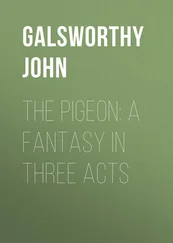John Galsworthy - Tatterdemalion
Здесь есть возможность читать онлайн «John Galsworthy - Tatterdemalion» — ознакомительный отрывок электронной книги совершенно бесплатно, а после прочтения отрывка купить полную версию. В некоторых случаях можно слушать аудио, скачать через торрент в формате fb2 и присутствует краткое содержание. Жанр: История, foreign_antique, foreign_prose, на английском языке. Описание произведения, (предисловие) а так же отзывы посетителей доступны на портале библиотеки ЛибКат.
- Название:Tatterdemalion
- Автор:
- Жанр:
- Год:неизвестен
- ISBN:нет данных
- Рейтинг книги:5 / 5. Голосов: 1
-
Избранное:Добавить в избранное
- Отзывы:
-
Ваша оценка:
- 100
- 1
- 2
- 3
- 4
- 5
Tatterdemalion: краткое содержание, описание и аннотация
Предлагаем к чтению аннотацию, описание, краткое содержание или предисловие (зависит от того, что написал сам автор книги «Tatterdemalion»). Если вы не нашли необходимую информацию о книге — напишите в комментариях, мы постараемся отыскать её.
Tatterdemalion — читать онлайн ознакомительный отрывок
Ниже представлен текст книги, разбитый по страницам. Система сохранения места последней прочитанной страницы, позволяет с удобством читать онлайн бесплатно книгу «Tatterdemalion», без необходимости каждый раз заново искать на чём Вы остановились. Поставьте закладку, и сможете в любой момент перейти на страницу, на которой закончили чтение.
Интервал:
Закладка:
Then, one bright day, a 'Power,' watching his hands, conceived the idea of giving him two balls of string, one blue, the other buff, and all that afternoon he stayed up a single tree, and came down with one of his rare sweet smiles and a little net, half blue, half buff, with a handle covered with a twist of Turkey-red twill – such a thing as one scoops up shrimps with. He was paid for it, and his eyes sparkled. You see, he had no money – the ' poilu ' seldom has; and money meant drink, and tobacco in his cheek. They gave him more string, and for the next few days it rained little nets, beautifully if simply made. They thought that his salvation was in sight. It takes an eye to tell salvation from damnation, sometimes… In any case, he no longer roamed from tree to tree, but sat across a single branch, netting. The 'Powers' began to speak of him as 'rather a dear,' for it is characteristic of human nature to take interest only in that which by some sign of progress makes you feel that you are doing good.
Next Sunday a distinguished doctor came, and, when he had been fed, some one conceived the notion of interesting him, too, in Flotsam. A learned, kindly, influential man – well-fed – something might come of it, even that ' réforme ,' that sending home, which all agreed was what poor Roche needed, to restore his brain. He was brought in, therefore, amongst the chattering party, and stood, dark, shy, his head down, like the man in Millet's 'Angelus,' his hands folded on his cap, in front of his unspeakably buttoned blue baggy trousers, as though in attitude of prayer to the doctor, who, uniformed and grey-bearded, like an old somnolent goat, beamed on him through spectacles with a sort of shrewd benevolence. The catechism began. So he had something to ask, had he? A swift, shy lift of the eyes: 'Yes.' 'What then?' 'To go home.' 'To go home? What for? To get married?' A swift, shy smile. 'Fair or dark?' No answer, only a shift of hands on his cap. 'What! Was there no one – no ladies at home?' ' Ce n'est pas ça qui manque! ' At the laughter greeting that dim flicker of wit the uplifted face was cast down again. That lonely, lost figure must suddenly have struck the doctor, for his catechism became a long, embarrassed scrutiny; and with an: ' Eh bien! mon vieux, nous verrons! ' ended. Nothing came of it, of course. ' Cas de réforme? ' Oh, certainly, if it had depended on the learned, kindly doctor. But the system – and all its doors to be unlocked! Why, by the time the last door was prepared to open, the first would be closed again! So the 'Powers' gave Roche more string – so good, you know, to see him interested in something!.. It does take an eye to tell salvation from damnation! For he began to go down now of an afternoon into the little old town – not smelless, but most quaint – all yellowish-grey, with rosy-tiled roofs. Once it had been Roman, once a walled city of the Middle Ages; never would it be modern. The dogs ran muzzled; from a first-floor a goat, munching green fodder, hung his devilish black beard above your head; and through the main street the peasant farmers, above military age, looking old as sun-dried roots, in their dark pélerines , drove their wives and produce in little slow carts. Parched oleanders in pots one would pass, and old balconies with wilting flowers hanging down over the stone, and perhaps an umbrella with a little silver handle, set out to dry. Roche would go in by the back way, where the old town gossips sat on a bench in the winter sunshine, facing the lonely cross shining gold on the high hill-top opposite, placed there in days when there was some meaning in such things; past the little ' Place ' with the old fountain and the brown plane-trees in front of the Mairie; past the church, so ancient that it had fortunately been forgotten, and remained unfinished and beautiful. Did Roche, Breton that he was – half the love-ladies in Paris, they say – falsely, no doubt – are Bretonnes – ever enter the church in passing? Some rascal had tried to burn down its beautiful old door from the inside, and the flames had left on all that high western wall smears like the fingermarks of hell, or the background of a Velasquez Crucifixion. Did he ever enter and stand, knotting his knot which never got knotted, in the dark loveliness of that grave building, where in the deep silence a dusty-gold little angel blows on his horn from the top of the canopied pulpit, and a dim carved Christ of touching beauty looks down on His fellow-men from above some dry chrysanthemums; and a tall candle burned quiet and lonely here and there, and the flags of France hung above the altar, that men might know how God – though resting – was with them and their country? Perhaps! But, more likely, he passed it, with its great bell riding high and open among scrolls of ironwork, and – Breton that he was – entered the nearest cabaret, kept by the woman who would tell you that her soldier husband had passed 'within two fingers' of death. One cannot spend one's earnings in a church, nor appease there the inextinguishable longings of a sailor.
And lo! – on Christmas day Roche came back so drunk that his nurse Mignan took him to his bedroom and turned the key of the door on him. But you must not do this to a Breton fisherman full of drink and claustrophobia. It was one of those errors even Frenchmen may make, to the after sorrow of their victims. One of the female 'Powers,' standing outside, heard a roar, the crash of a foot against the panel of a door, and saw Roche, 'like a great cat' come slithering through the hole. He flung his arm out, brushed the 'Power' back against the wall, cried out fiercely: ' La boîte – je ne veux pas la boîte! ' and rushed for the stairs. Here were other female 'Powers'; he dashed them aside and passed down. But in the bureau at the foot was a young Corporal of the ' Legion Etrangère ' – a Spaniard who had volunteered for France – great France; he ran out, took Roche gently by the arm, and offered to drink with him. And so they sat, those two, in the little bureau, drinking black coffee, while the young Corporal talked like an angel and Roche like a wild man – about his mother, about his dead brother who had been sitting on his bed, as he said, about ' la boîte ,' and the turning of that key. And slowly he became himself – or so they thought – and all went in to supper. Ten minutes later one of the 'Powers,' looking for the twentieth time to make sure he was eating, saw an empty place: he had slipped out like a shadow and was gone again. A big cavalryman and the Corporal retrieved him that night from a café near the station; they had to use force at times to bring him in. Two days later he was transferred to a town hospital, where discipline would not allow him to get drunk or climb trees. For the 'Powers' had reasoned thus: To climb trees is bad; to get drunk is bad; but to do both puts on us too much responsibility; he must go! They had, in fact, been scared. And so he passed away to a room under the roof of a hospital in the big town miles away — la boîte indeed! – where for liberty he must use a courtyard without trees, and but little tobacco came to his cheek; and there he eats his heart out to this day, perhaps. But some say he had no heart – only the love of drink, and climbing. Yet, on that last evening, to one who was paying him for a little net, he blurted out: 'Some day I will tell you something – not now – in a year's time. Vous êtes le seul – ! ' What did he mean by that, if he had no heart to eat?.. The night after he had gone, a little black dog strayed up, and among the trees barked and barked at some portent or phantom. 'Ah! the camel! Ah! the pig! I had him on my back all night!' Grandpère Poirot said next morning. That was the very last of Flotsam…
Читать дальшеИнтервал:
Закладка:
Похожие книги на «Tatterdemalion»
Представляем Вашему вниманию похожие книги на «Tatterdemalion» списком для выбора. Мы отобрали схожую по названию и смыслу литературу в надежде предоставить читателям больше вариантов отыскать новые, интересные, ещё непрочитанные произведения.
Обсуждение, отзывы о книге «Tatterdemalion» и просто собственные мнения читателей. Оставьте ваши комментарии, напишите, что Вы думаете о произведении, его смысле или главных героях. Укажите что конкретно понравилось, а что нет, и почему Вы так считаете.












